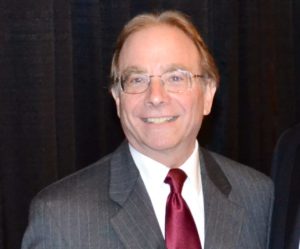
Rutgers expert: Bad-faith laws help policyholders, study for N.J. ‘unreliable’
By onAssociations | Business Practices | Insurance | Legal
Insurers raised the specters of higher premiums and more litigation when faced with a recent New Jersey bill permitting consumers to sue for improper claims behavior.
But Rutgers-Camden law professor Jay Feinman of “Delay, Deny, Defend” fame produced research showing such bills offer the largest benefit to policyholders lacking attorneys and — using opponents’ own data — only a small premium increase.
Feinman, co-director of the Rutgers Center for Risk and Responsibility, also demonstrated how a high-profile study touted by bill opponents featured what he called significantly flawed methodology. He told lawmakers he thought it “unreliable.”
The insurance expert’s comments might be of interest to collision repairers and consumers pursuing such “private right of action” bills in New Jersey and other states.
New Jersey Senate Bill 2144 and companion Assembly Bill 4293 let first-party consumers sue over “an unreasonable delay or unreasonable denial of a claim for payment of benefits under an insurance policy” or any violation of the state’s “unfair methods of competition and unfair and deceptive acts or practices in the business of insurance” law, Title 17:29B-4.
Some of the behaviors covered by Title 17:29B-4 might seem familiar to collision repairers. As lawmakers described it, the bill prohibits “among other things, misrepresentations and false advertising of policy contracts, false information and advertising generally, defamation, unfair discrimination, unfair claim settlement practices and failure to maintain complaint handling procedures.”
The SB 2144 which passed the New Jersey Senate 21-14 permitted lawsuits by first-party claimants with multiple property and casualty lines of coverage and allowed successful plaintiffs to collect triple damages. Though the bill cleared the Senate on June 7, 2018, the Assembly Financial Institutions and Insurance Committee waited months before finally hearing the measure and its Assembly companion on Jan. 9, 2019.
Feinman testified at that hearing and referenced a study he performed using 2018 research by actuarial firm Milliman on behalf of insurer trade groups. The company released a new version of the report in August 2019 reflecting updated statistics but with no other significant changes.
He sent us a copy of those findings and a memo on the bill.
Those documents exposed an significant error in the Milliman report and made a case for such legislation in New Jersey and elsewhere. They might make an even stronger case for the version ultimately approved by the Assembly Committee and likely to return this session in the Senate, for the new draft is significantly scaled down. The amended bill only permits lawsuits by uninsured and underinsured motorist first-party claimants and does not grant triple damages.
However, Assembly members have pre-filed Assembly Bill 1659, which restores the language the Senate had approved.
Private right of action
New Jersey does not permit policyholders to sue carriers in a private right of action for claims practices prohibited in its version of the National Association of Insurance Commissioners’ Unfair Claims Settlement Practices Act, according to Feinman.
Only the Department of Banking and Insurance can take action, and penalties only range from $1,000-$5,000 per violation, according to Feinman. SB 2144 supporter AASP-NJ has also accused the agency declaring itself unable to help.
Collision industry attorney Erica Eversman, a consumer liasion to the NAIC, said insurance regulators broke down into three types. The first is out to protect insurers. The second focus on laws and regulation and act narrowly within those parameters. The third type is very consumer-friendly.
Eversman (Vehicle information Services) suggested that repairers nationwide seeking legislation might consider including a private right of action.
The insurance industry “will kick and scream” over that, she predicted at an April 2019 SCRS “Repairer Roundtable.”
“That’s the biggest problem … we have with the insurance industry,” she said. She said insurers were “totally insulated” and without a private right of action, you can’t sue them for violating insurance regulations.
Some states do permit a private right of action for unfair claims settlement violations, but New Jersey isn’t one of them, according to Feinman. Policyholders can sue an insurer for bad faith, but the New Jersey Supreme Court decision in Pickett v. Lloyd’s limits the ability of such lawsuits to help consumers, he said.
According to Feinman, the ruling means new Jersey consumers can only sue for bad faith “where the company has committed wrongful conduct intentionally or recklessly; a company may negligently or unreasonably delay or deny a claim without consequence.” Its requirement that a claimant be able to win on summary judgment “presents an almost impossible burden and violates basic principles of insurance law, such as the rule that ambiguous terms in an insurance policy must be construed against the company that drafted it.”
Since that 1993 decision, only five bad-faith cases made it past summary judgment in New Jersey, and no consumers won before a jury, according to a 2012 article in New Jersey Lawyer.
Feinman argued in the memo that consumers needed more protection.
Benefit to consumers
He wrote that a body of academic research on similar laws finds insurers paying claims more quickly and more closely to fair value.
In addition, “policyholders who are not represented by lawyers and who do not have to engage in litigation benefit the most from changes in insurance company behavior,” he wrote.
In another document, he said such research also found “The frequency of lawsuits by policyholders against insurers is not appreciably higher in bad faith states” and “In bad faith states, fraud rates for both insurance claims and lawsuits do not increase as significantly as critics allege, if at all.”
Such laws are fairly common, according to Feinman.
“About ten states use a ‘reasonableness’ standard like that in the IFCA, about twenty states award attorneys’ fees in insurance cases (sometimes in coverage cases, not just bad faith cases), and many states have extracontractual remedies,” Feinman wrote. “Yet these states still have robust insurance markets, with many New Jersey insurers selling policies there as well. The presence of better consumer protection does not undermine the insurance market.”
Milliman in August 2019 cited a 2005 study of third-party lawsuits by the West Virginia Department of Insurance to argue that what Feinman called paying claims quickly and fairly was merely “an incentive for insurers to settle claims at higher amounts” out of fear of a “large unfavorable judgment.”
“There will likely be new claims related to first and third party bad faith actions due to the possibility of treble damages with attorney fees provided for,” Milliman wrote. “In addition, non-bad faith claims could increase as insurers begin to settle some marginal claims that would have been denied under current law in order to avoid the risk of questionable, new litigation. Claimants could bring more claims with no additional costs to them as attorney fees would be covered – and most auto accidents already employ lawyers to sue a third party so there would be little additional work.
“… Claims will likely settle at higher amounts as insurers increase proposed settlements to avoid bad faith actions and associated costs. Claims settlement practices may also change as insurers may need to defend more first and third party actions that may lead to an increase in loss adjustment expenses.”
Ironically, while Milliman notes of consumers that “economic theory suggests that individuals make decisions to maximize their welfare,” it fails to apply the same logic to insurers.
‘Fundamental misunderstanding’
Milliman also overlooks a critical point about the bills it analyzed: They don’t seem to apply to third-party claims.
The original and Senate-approved version of SB2144 both state:
“‘First-party claimant’ or ‘claimant’ means an individual, corporation, association, partnership or other legal entity asserting an entitlement to benefits owed directly to or on behalf of an insured under an insurance policy.”
Both the original and the version sent to the Senate floor April 5, 2018, carried statements that the bill “establishes a private cause of action for first-party claimants regarding certain unfair or unreasonable practices by their insurer.” (Emphasis ours.)
The original companion Assembly Bill 3850 filed April 12, 2018, echoes both pieces of language, as does the original version of AB 4293 on June 2, 2018. The language also appears in the AB 4293 sent to the Assembly floor and a statement accompanying it.
Legislative intent at the the time Milliman wrote its first study May 25, 2018, seems obvious, and it seemed obvious when the firm revised its study in August 2019.
Nevertheless, Milliman wrote that “Although it is not specifically stated, the consensus among the experts interviewed is that the bill will apply to third party claimants.” (Emphasis added.)
“… For our analysis, we have assumed that the bill applies to both first and third party claimants as per the opinion of our interviewed experts. We would note that by including third party claimants, the proposed bill is unusual as most states do not allow third party lawsuits against insurers or only establish very narrow rights for third party bad faith recovery.”
It ran with this incorrect assumption and a prediction that New Jersey would present a “‘Florida Type’ bad faith environment” to estimate how much premiums would rise, according to Feinman.
Feinman said Milliman in 2018 predicted private passenger auto insurance premiums would rose 7.2 percent under a low-end scenario, 13.4 percent under a medium scenario, and 19.6 percent on the high end.
The most recent NAIC data puts the average New Jersey auto premium at $1,309.29 in 2016. (Feinman used $1,302, but said this was probably a typo.) A 13.4 percent increase would raise premiums nearly $175.45, based on Milliman’s 2018 projections.
Except Milliman’s assessment is fatally flawed, according to Feinman.
“The bill does not apply to third-party claimants; a tort plaintiff cannot bring an action under the bill against the defendant’s insurance company,” Feinman wrote.
“This assumption is disingenuous or worse. The report’s ‘interviewed experts’ are likely from its sponsors in the insurance industry, the same experts who, if the IFCA is adopted, undoubtedly would argue aggressively in litigation that the Act only applies to first-party claimants and not to third-party claimants. Moreover, immediately after the sentence quoted above, the report notes that other states do not apply bad faith law to third party claimants … The report does not even consider the possibility of a different interpretation of the IFCA, one that, as it notes, would be consistent with the law in other states. A balanced report would consider that alternative interpretation and also use it in the analysis.
“Simply correcting the report’s fundamental misunderstanding shows that the report over-estimates the likely effect of the IFCA on insurance premiums by a factor of two or three times or more.” (Emphasis added.)
Using the same methodology as Milliman but throwing out the third-party data “paints a different picture,” Feinman said.
At the low end, private passenger auto premiums rise 2.4 percent. They climb 6.0 percent under a moderate scenario and increase by 9.7 percent on the high end. With the average auto policyholder paying $1,309.29, the average premium rises just $78.55, according to Feinman. (He had put the amount at $78 using the $1,302 typo.)
Milliman’s 2019 report updates its data to reflect the latest stuff — but it preserves Feinman’s “fundamental misunderstanding” of incorporating third-party information. So his point still works.
“80 dollars isn’t nothing,” Feinman acknowledged to the Assembly committee Jan. 9, but he argued that it could be worth it to guarantee one’s insurance worked correctly. He likened it to buying a TV with zero manufacturer protection — you’re utterly on your own if it breaks — or paying $80 to get one carrying the usual factory warranty. Unlike a consumer product, insurance lacked such a warranty, he said.
Feinman also called Milliman’s report flawed on additional grounds.
“In its calculations, it relies exclusively on data from Florida, rather than other states that have recently enacted reforms,” he wrote. “It misunderstands the role of attorneys in the insurance claim process. It misstates the incentives of claimants and attorneys. It misrepresents the conclusions of empirical research on bad faith law in other states.”
Feinman’s analysis applies to the original version of the bill. Any premium increase would presumably be even smaller, since the legislation now excludes everything but uninsured and underinsured motorist coverage.
Feinman and the AASP-NJ have also pointed out that carriers in New Jersey aren’t allowed to raise premiums to compensate for lawsuit losses. (Though in fairness, we should point out that money is fungible and this might be difficult to enforce in practice.)
ICNJ counterpoint
Milliman didn’t respond to requests for comment on Feinman’s criticism.
However, the Insurance Council of New Jersey provided a counterpoint on Wednesday. The organization features the 2019 Milliman report on its “Don’t Touch My Insurance” website. It also incorporates the company’s high-end projection of uninsured/motorist premiums rising 19.3 percent, or $125 million across all of New Jersey. (And since
“Thanks for seeking comment from us regarding the testimony disputing the NJ Milliman study analyzing the potential financial impact of the ‘bad faith’ bill,” ICNJ President Christine O’Brien wrote. “As you note, the version of the NJ Insurance Fair Conduct Act that was released from the AFI committee does focus on first party UM/UIM claims. The Milliman study analyzed the original version of the bill which, in our interpretation, addressed both first and third party claims.”
“As is, the amended bill would still allow for any subjective, undefined ‘unreasonable’ delay or denial of a UM/UIM claim to trigger a costly bad faith action. The ICNJ stands by the Milliman analysis, even in this narrow context, since opening the floodgates to increased litigation will inevitably lead to unpredictable expenses resulting in higher premiums for policyholders.
“Though the Milliman study took into consideration the impact of the original version of the bill, it also estimates a $125 million increase for UM/UIM coverage. ”
Be heard: Complaints can be filed at the Department of Banking and Insurance here. Senator and assembly member contact information can be found here.
Images:
Rutgers-Camden law professor Jay Feinman. (Provided by Rutgers)
A gavel and scales of justice are shown. (marchmeena29/iStock)
The New Jersey Capitol is shown. (Aneese/iStock)
Some dollars. (OlyaSolodenko/iStock)



